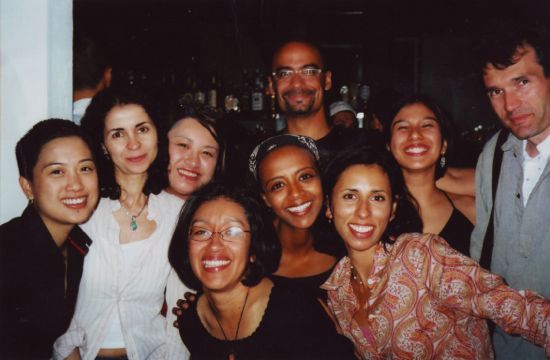MFA & POC

Last week, The New Yorker published an essay by Junot Díaz about his experience as a person of color in the Master of Fine Arts program at Cornell University. Of his time in the program, he wrote:
I didn’t have a great workshop experience. Not at all. In fact by the start of my second year I was like: get me the fuck out of here.
So what was the problem?
Oh just the standard problem of MFA programs.
That shit was too white.
Díaz goes on to describe the problems he faced: the faculty was not diverse, the curriculum skewed toward white male authors, there was a pervasive silence about issues of race, etc. These are experiences that feel familiar to me. When I took writing classes in the U.S., I discovered very quickly that my literary references were different from those of my classmates. I had read Abouzeid, Mahfouz, Saramago, Choukri, Marquez, but they were writers whose work was never included in reading lists on the craft of writing. If, in the course of a discussion on plot or character or point of view, I brought up an African or South American writer, my example would usually fall flat and immediately be superseded by a more familiar (white) writer. Once, I remember, I was told that I had to completely rewrite one of my stories: instead of it being about Moroccan immigrants to Spain, it should be about Cuban immigrants to Florida because “this will be more familiar to your readers.” I think this was why Díaz’s piece was so popular: it spoke about marginalizing experiences that many young writers of color have.
Díaz’s essay was a condensed form of his introduction for the anthology Dismantle, edited by Marissa Johnson-Valenzuela, Andrea Walls, Adriana Ramirez, Camille Acker, and Marco Fernando Navarro. Dismantle collects the work of alumni from the Voices of Our Nation Workshop, which was founded by Elmaz Abinader, Victor Díaz, Diem Jones, and Junot Díaz in 1999. I attended the workshop in 2004 and found it to be different from others I had taken. No one tried to make my work fit into a mold of what an ‘immigrant story’ should be like, or shied away from difficult themes, or suggested I give my characters ‘easier’ names. Bonus: I made friends with whom I remain close and I learned a few things that I bring into my own pedagogy.
The photo above was taken at the conclusion of the workshop in 2004. (From left to right: Patty Tumang, me, Beverly Mendoza, Estella Gonzalez, Junot Díaz, Maaza Mengiste, Leticia del Toro, Leticia’s husband Michel.) If I look a little dazed in the photo, it’s probably because I had recently had a baby and was completely exhausted from lack of sleep. Every day, I had to get up early to pump, then I’d go to class, come back to my dorm room, and pump some more. I was tired and I missed my baby. Which brings me to another aspect of the writer’s life: we all need supportive partners. One of the pieces of advice that I always give to my students is to build a network of support, whether it’s a spouse, a sibling, a parent, a friend. Writing may be a solitary effort, but it cannot be done without a community.